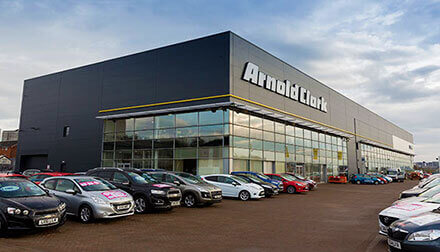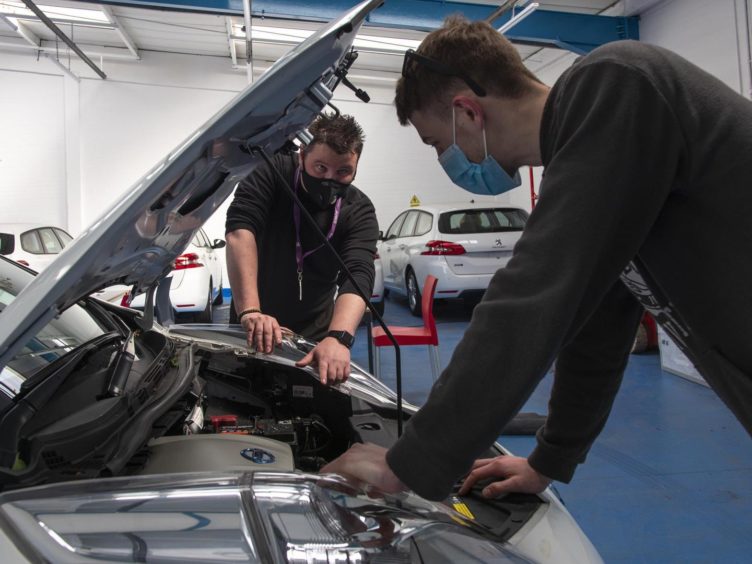As sales figures for new electric vehicles rocket – more than 100,000 new registrations in the first half of this year – professional servicing of EVs has become a top priority for car owners looking to make the switch from a conventional car.
According to EVA Scotland, training of technicians to the highest standards means both investment and total commitment to providing existing owners and those considering changing to an EV, the confidence in after sales servicing to do so.
“Professional EV servicing now features in the decision to go all-electric,” explains Electric Vehicle Association director, Neil Swanson. “Dealerships must be adequately staffed with professionally qualified technicians to meet this rapidly expanding EV sales boom.”
The difference in new car prices between electric cars and traditional internal combustion engine (ICE) vehicles is gradually narrowing and expected to largely disappear over the next few years.
Mr Swanson added: “Some dealerships may not be familiar with or have no previous experience of EV specialisms, but they are rapidly up-skilling and there are a growing number of specialist companies on hand including members of HEVRA (the hybrid and electric vehicle repair alliance) to help. Member garages have been checked for the right qualifications, tools and equipment to service and repair electric and hybrid vehicles.”
Industry standards for servicing electric vehicles are high for both privately owned vehicles and commercial fleets. The Department of Transport demands that only fully qualified repair and maintenance facilities and staff are in place to ensure rigorous industry standards are applied that give customers the confidence and reassurance that their electric or hybrid vehicles are kept in the best possible condition.
According to Arnold Clark, one of Scotland’s largest EV car franchises: “Electric vehicles are actually easier to service because they contain a motor and a battery pack, rather than engines with a complex system of moving parts from pistons and gears, to valves and drive belts.”

At its Glasgow and Stafford ‘Innovation Centres’ Arnold Clark customers can see first hand how EVs operate and how they are serviced. One of the UK’s leading experts on EVs and battery technology, electrochemist Dr. Euan McTurk says:
“The uptake of electric vehicles has been so rapid that the global supply of engineers, technicians and electrochemists is playing catch up. The good news is that most of the servicing and repairs that an electric vehicle would need, could be performed by any mechanic. Furthermore, electric vehicles are exceptionally reliable, so the chances of requiring an EV specialist to perform a repair are very slim.
“However, for that tiny fraction of work that involves the high voltage system and electronics that are unfamiliar to a petrol/diesel mechanic, EV trained technicians are masters at fault finding and repairing, and can save drivers vast sums of money versus going to a dealer who may replace a repairable component outright.”
CleevelyEV in Gloucestershire are ahead of the game, able to complete an EV repair at a level that perhaps a dealership would not yet consider, from single battery module or cell replacement, to single component replacement in the power electronics.
The company has onboard telematics systems capable of identifying issues and diagnostics that can schedule for early intervention before they becoming a problem and this is an area that dealerships perhaps need to develop if they wish to stay relevant in today’s EV servicing marketplace.
Neil Swanson continued: “An EV requires less servicing than a petrol or diesel vehicle, however many aspects such as suspensions, tyres and brakes are the same. The areas that can be challenging are electronics and battery management systems, including cooling but these are not difficult provided the correct training is in place. Remember, EVs are famously reliable.
“Put simply, routine EV servicing is very much the same as on any other vehicle, something dealerships and private garages do day in and day out. With EV reliability among the best in market, issues are few and far between.”
Training is provided for each make of EV including more complex EV only systems. These are well supported by training courses already available on EV vehicle technology.
In Scotland, two colleges – Edinburgh and Dundee and Angus – already offer a suite of EV courses to support the demand for EV trained technicians. The Michelin Scotland Innovation Parc (MSIP) – a massive e-mobility hub in Dundee – has launched its hands-on Skills Academy to train the next generation of technicians and engineers for the manufacturing, servicing and recycling of increasing numbers of EVs.
Last year the Institute of the Motor Industry (IMI) urged government to boost employer funding for EV skills training.
Norrie Hunter

